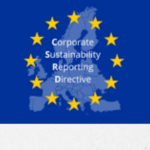Important message to the competent authorities and operators involved in the mango sector
- 09/03/2019
- Posted by: Gaetan Dermien
- Category: Uncategorized
The European Union is in the process of overhauling its plant health regulations. In December 2019, the new EU plant health regulation will become fully operational. In the meantime, the existing rules are being enforced more rigorously and special measures have already been introduced for a number of imported crops where there have been high numbers of notifications due to quarantine pests.
The new EU plant health rules focus in particular on crops that are a known pathway into the EU of serious pests that could damage EU agriculture or the environment. One of these serious pests is the non-European fruit fly (Tephritidae). In recent years there have been consistently high numbers of interceptions due to the presence of this pest in mango imported from ACP countries, and this has resulted in a decision to introduce special measures to tackle the problem.
In October 2018 a Draft Commission Implementing Directive was introduced, amending Annexes I to V of Council Directive 2000/29/EC, and including changes that affect mango. The changes have already been notified through the WTO, so the process is well underway. It is expected that the Directive will be formally adopted in March, and published in April, after which there will be a 5-month transition period before it comes into force.
The new Directive will require action from producers, exporters and the National Plant Protection Organisation (NPPO). It gives four possible options, but only one of these is applicable to the mango sector in ACP countries. The first three options require pest-free countries, zones, or production units, which in practice are not viable options.
According to the fourth option, when the Directive comes into force, mango imports will only be permitted into the EU if “They have been subjected to an effective treatment to ensure freedom from Tephritidae (non-European)”. Information documenting the treatment must be recorded on the plant health certificate that accompanies the consignment. Furthermore, before the designated start date, the NPPO must send a dossier to the EC outlining in detail the treatments that must be applied. This dossier can include post-harvest treatments, and/or a pre-harvest “systems approach” that covers control and management (IPM) of the pest in the field. The NPPO must work together with the mango industry to agree an action plan that will ensure all exported mango is 100% free of fruit flies. Once the action plan is agreed, all parties must follow it rigorously.
COLEACP will provide more information on the details of the new rules (including the start date) as it becomes available. Under its Fit for Market programmes, COLEACP will be available to support both NPPOs and the mango industry in each country in the development of the dossiers to be submitted to the EC before the end of the year. COLEACP is also available to work with the mango industry and national authorities to help put the necessary actions in place.
In the meantime, while the new rules will only enter into force after the end of the 2019 season, it is critically important for 2019 exports to be tightly managed so that there are a minimum number of interceptions due to fruit fly. If levels continue as in previous years, it is possible that the EC will take more drastic action against imports from ACP countries for the 2020 season.


![EU and GB approval changes (January-May 2024) 9-FFM+-[ENG]](https://news.colead.link/wp-content/uploads/2024/06/9-FFM-ENG-150x150.jpg)

